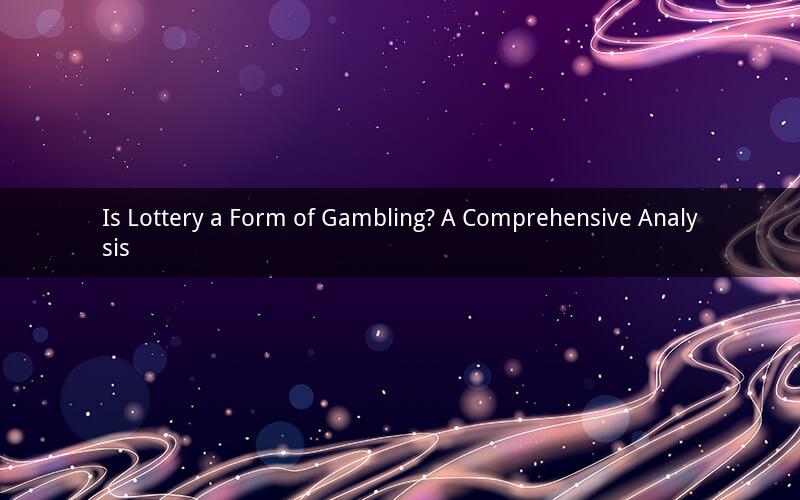
Introduction:
The lottery has been a popular form of entertainment and a source of funding for various public projects around the world. However, the question of whether the lottery is a form of gambling has sparked debates among enthusiasts and critics alike. In this article, we will delve into the essence of gambling and explore the similarities and differences between the lottery and traditional gambling activities.
1. Understanding Gambling:
Gambling is an activity that involves betting something of value on an uncertain event, with the primary intent of winning something of greater value. It is characterized by the element of chance and the potential for financial gain or loss. Common forms of gambling include casino games, sports betting, poker, and horse racing.
2. The Lottery as a Form of Gambling:
To determine whether the lottery is a form of gambling, we need to analyze its core characteristics and compare them with those of traditional gambling activities.
2.1 Betting on an Uncertain Event:
The lottery involves purchasing a ticket with a set of numbers, and the winner is determined by a random draw. This element of chance aligns with the definition of gambling, as the outcome is uncertain and depends on luck.
2.2 Financial Gain or Loss:
Participants in the lottery invest money in the hope of winning a prize. While the majority of players lose their money, the possibility of winning a significant sum of money attracts many individuals. This aspect of financial gain or loss is a defining characteristic of gambling.
2.3 Legal and Ethical Considerations:
The lottery is legal in many countries and regulated by government authorities. While some argue that the lottery promotes gambling addiction, others contend that it serves a valuable purpose in generating funds for public projects. The ethical considerations surrounding the lottery contribute to the ongoing debate about its classification as a form of gambling.
3. Differences between the Lottery and Traditional Gambling:
While the lottery shares certain characteristics with traditional gambling, there are notable differences as well.
3.1 Organizational Structure:
The lottery is typically organized and operated by government authorities or licensed private entities. This distinguishes it from traditional gambling activities, which are often conducted by private entities or individuals.
3.2 Purpose:
The primary purpose of the lottery is to generate funds for public projects, such as education, healthcare, and infrastructure. In contrast, traditional gambling activities are primarily focused on entertainment and profit.
3.3 Regulation:
The lottery is subject to strict regulations and oversight to ensure fairness and prevent fraud. Traditional gambling activities may also be regulated, but the level of oversight can vary significantly.
4. The Impact of the Lottery on Society:
The lottery has a significant impact on society, both positive and negative.
4.1 Positive Impact:
The lottery generates substantial funds for public projects, benefiting communities and improving the quality of life for many individuals. It also provides a source of entertainment for millions of people.
4.2 Negative Impact:
The lottery can lead to gambling addiction, as the allure of winning a large sum of money can be irresistible to some individuals. It can also create social disparities, as wealthier individuals are more likely to participate in the lottery and benefit from its proceeds.
5. Conclusion:
In conclusion, the lottery can be considered a form of gambling due to its core characteristics of betting on an uncertain event with the potential for financial gain or loss. However, the lottery also serves a unique purpose in generating funds for public projects. The debate about its classification as a form of gambling continues, as both positive and negative impacts on society must be considered.
Questions and Answers:
1. Q: Is the lottery a form of gambling?
A: Yes, the lottery can be considered a form of gambling due to its core characteristics of betting on an uncertain event with the potential for financial gain or loss.
2. Q: What is the primary purpose of the lottery?
A: The primary purpose of the lottery is to generate funds for public projects, such as education, healthcare, and infrastructure.
3. Q: Can the lottery lead to gambling addiction?
A: Yes, the lottery can lead to gambling addiction, as the allure of winning a large sum of money can be irresistible to some individuals.
4. Q: How is the lottery different from traditional gambling activities?
A: The lottery is typically organized and operated by government authorities or licensed private entities, and its primary purpose is to generate funds for public projects, whereas traditional gambling activities are often conducted by private entities or individuals and focused on entertainment and profit.
5. Q: Can the lottery be regulated?
A: Yes, the lottery can be regulated to ensure fairness and prevent fraud. Regulations may vary depending on the country or region.